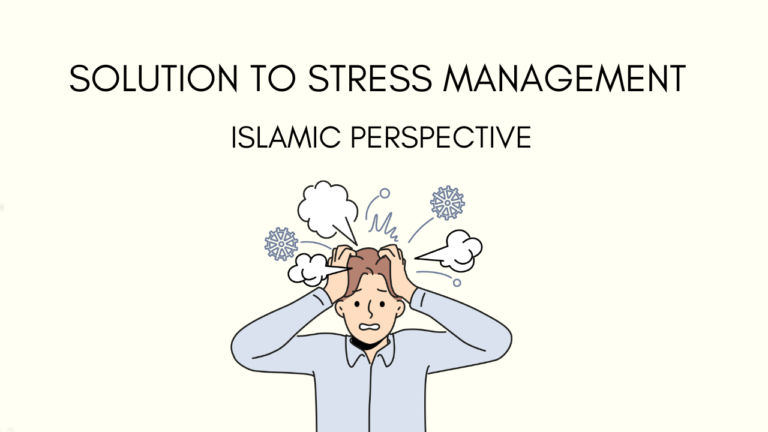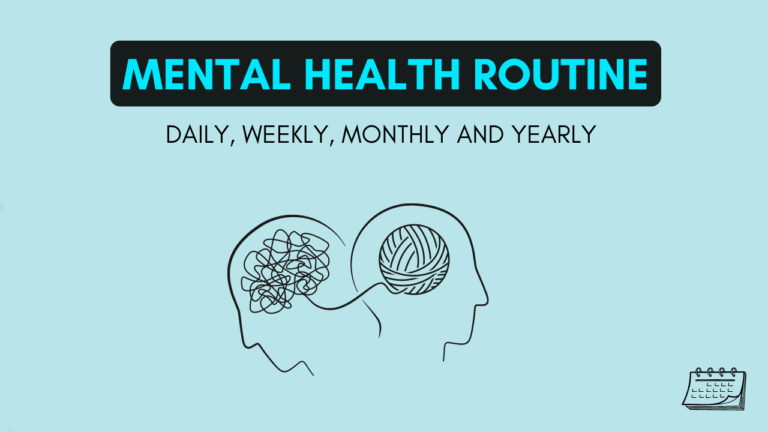In Islam, health is a holistic concept encompassing the physical, mental, and spiritual dimensions of human existence. These three aspects are deeply intertwined, and maintaining a balance among them is essential for achieving a fulfilling and righteous life. Islam encourages Muslims to take care of their health as a form of gratitude to Allah and a means of worship. Prophet Muhammad (ﷺ) emphasized the importance of health by saying:
قَالَ رَسُولُ اللَّهِ ﷺ: مَا مَنَحَ عَبْدٌ مَنْحَةً خَيْرًا وَأَوْسَعَ مِنْ صَبْرٍ، وَمَا أُعْطِيَ بَعْدَ الْإِيمَانِ شَيْئًا خَيْرًا مِنَ الْعَافِيَةِ
“No servant of Allah has been granted a gift better and more comprehensive than patience, and nothing better than good health after faith.”
(Sunan At-Tirmidhi 2039, Sahih)
This hadith indicates that after faith (iman), health is one of the greatest blessings from Allah. This article explores the different types of health—physical, mental, and spiritual—and their significance in Islam, along with practical guidelines for maintaining each type of well-being.
1. Physical Health in Islam
a) Importance of Physical Health
In Islam, the body is considered a trust (amanah) from Allah, and believers are required to take care of it to perform their duties towards Allah and others effectively. Physical health is essential for worship, such as praying, fasting, and performing Hajj. Without sound health, these acts of devotion can be difficult or impossible. Allah mentions the human body as a sign of His creation:
يَا أَيُّهَا النَّاسُ اعْبُدُوا رَبَّكُمُ الَّذِي خَلَقَكُمْ وَالَّذِينَ مِنْ قَبْلِكُمْ لَعَلَّكُمْ تَتَّقُونَ، الَّذِي جَعَلَ لَكُمُ الْأَرْضَ فِرَاشًا وَالسَّمَاءَ بِنَاءً وَأَنزَلَ مِنَ السَّمَاءِ مَاءً فَأَخْرَجَ بِهِ مِنَ الثَّمَرَاتِ رِزْقًا لَّكُمْ فَلَا تَجْعَلُوا لِلَّهِ أَندَادًا وَأَنتُمْ تَعْلَمُونَ
“O mankind, worship your Lord, who created you and those before you, that you may become righteous. [He] who made for you the earth a bed [spread out] and the sky a canopy and sent down from the sky rain and brought forth thereby fruits as provision for you.”
(Surah Al-Baqarah, 2:21-22)
The human body is part of this creation, and it must be nurtured and cared for. The Prophet (ﷺ) also warned against neglecting the body:
إِنَّ لِجَسَدِكَ عَلَيْكَ حَقًّا
“Indeed, your body has a right upon you.”
(Sahih Al-Bukhari 6139)
b) Principles for Maintaining Physical Health
-
Balanced Diet (Halal and Tayyib Food)
Islam encourages moderation in eating, avoiding excess and gluttony. Allah says:
كُلُوا وَاشْرَبُوا وَلَا تُسْرِفُوا
“Eat and drink, but be not excessive.”
(Surah Al-A’raf, 7:31)Consuming halal (permissible) and tayyib (pure, wholesome) food is fundamental. Prophet Muhammad (ﷺ) said:
الطَّعَامُ فِي الْحَلَالِ نِعْمَةٌ وَفِي الْحَرَامِ لَعْنَةٌ
“Food from halal is a blessing, and from haram is a curse.”
(Musnad Ahmad)A balanced diet includes a variety of foods that nourish the body, avoiding harmful substances like alcohol or foods that lead to laziness and disease.
-
Exercise and Physical Activity
The Prophet (ﷺ) encouraged physical activity, and he himself participated in various forms of exercise like horse riding, archery, and wrestling. He said:
الْمُؤْمِنُ الْقَوِيُّ خَيْرٌ وَأَحَبُّ إِلَى اللَّهِ مِنَ الْمُؤْمِنِ الضَّعِيفِ
“The strong believer is better and more beloved to Allah than the weak believer.”
(Sahih Muslim 2664)Regular exercise strengthens the body and prepares it to serve Allah and His creation.
-
Personal Hygiene
Islam places a strong emphasis on cleanliness, which is an integral part of health. The Prophet (ﷺ) said:
الطُّهُورُ شَطْرُ الْإِيمَانِ
“Cleanliness is half of faith.”
(Sahih Muslim 223)Practices such as regular bathing, washing hands, brushing teeth (using the miswak), and keeping clothes clean are part of Islamic hygiene, which protects the body from disease and fosters a healthy lifestyle.
-
Adequate Rest and Sleep
Rest is vital for maintaining physical health. The Prophet (ﷺ) advised moderation in sleep and other activities, as overindulgence in anything can have negative effects. He said:
وَلَكِنِّي أُصَلِّي وَأَنَامُ
“I pray and I sleep.”
(Sahih Al-Bukhari 1978)Maintaining a balanced routine of work, worship, and rest is encouraged for overall well-being.
2. Mental Health in Islam
a) Importance of Mental Health
Mental health is essential for a believer’s spiritual and physical well-being. A healthy mind allows a person to reflect, make sound decisions, and maintain emotional stability. In Islam, the heart (qalb) is often mentioned in connection with a person’s mental and emotional state, indicating the close link between spiritual and mental well-being.
إِنَّ فِي ذَٰلِكَ لَذِكْرَىٰ لِمَن كَانَ لَهُ قَلْبٌ أَوْ أَلْقَى السَّمْعَ وَهُوَ شَهِيدٌ
“Indeed, in that is a reminder for whoever has a heart or who listens while he is present [in mind].”
(Surah Qaf, 50:37)
Maintaining mental health is a form of worship as it enables one to carry out obligations towards Allah and others more effectively.
b) Principles for Maintaining Mental Health
-
Trust in Allah (Tawakkul)
Mental peace in Islam is rooted in trusting Allah’s decree (qadr). Whatever happens in life, a Muslim is taught to believe that Allah has a plan, which alleviates anxiety and fear. Allah says:
إِنَّمَا ذَٰلِكُمُ الشَّيْطَانُ يُخَوِّفُ أَوْلِيَاءَهُ فَلَا تَخَافُوهُمْ وَخَافُونِ إِن كُنتُم مُّؤْمِنِينَ
“It is only Satan that causes fear of his supporters, so fear them not, but fear Me, if you are [indeed] believers.”
(Surah Aal-Imran, 3:175)Tawakkul encourages patience (sabr) and reliance on Allah in times of stress, reducing mental anguish.
-
Positive Thinking (Husn al-Dhann)
Islam promotes optimism and having a positive view of Allah and life. The Prophet (ﷺ) said:
إِنَّ الظَّنَّ خَيْرٌ مِنْ سُوءِ الظَّنِّ
“Indeed, positive assumption is better than negative assumption.”
(Sahih Bukhari 750)Optimism in one’s outlook and relationship with others promotes emotional resilience and mental stability.
-
Seeking Counseling and Help
Islam encourages seeking advice and counseling (naseeha) during difficult times. The Prophet (ﷺ) regularly sought advice from his companions. Seeking support is a way to relieve mental burdens and achieve clarity.
-
Gratitude (Shukr) and Contentment (Qana’ah)
Gratitude and contentment are essential for mental health. Allah says:
لَئِن شَكَرْتُمْ لَأَزِيدَنَّكُمْ
“If you are grateful, I will surely increase you.”
(Surah Ibrahim, 14:7)Being thankful for Allah’s blessings shifts the focus away from negativity and cultivates a positive mental state.
-
Salah (Prayer) and Dhikr (Remembrance of Allah)
Salah and dhikr are potent tools in relieving mental stress. Allah says:
أَلَا بِذِكْرِ اللَّهِ تَطْمَئِنُّ الْقُلُوبُ
“Verily in the remembrance of Allah do hearts find rest.”
(Surah Ar-Ra’d, 13:28)Regular prayer helps in centering the mind, relieving anxiety, and fostering inner peace.
3. Spiritual Health in Islam
a) Importance of Spiritual Health
Spiritual health is the foundation upon which physical and mental health are built. It is rooted in the relationship between the servant and Allah, the Creator. Spiritual health is essential for guiding the believer’s actions, intentions, and overall sense of purpose.
Allah says:
فَفِرُّوا إِلَى اللَّهِ
“So flee to Allah.”
(Surah Adh-Dhariyat, 51:50)
This implies that one should seek refuge and guidance in Allah for spiritual well-being.
b) Principles for Maintaining Spiritual Health
-
Strengthening Faith (Iman) and Taqwa
Faith (iman) and God-consciousness (taqwa) are the core elements of spiritual health. These are nurtured through regular acts of worship like salah, fasting, and charity. Allah says:
إِنَّ أَكْرَمَكُمْ عِندَ اللَّهِ أَتْقَاكُمْ
“Indeed, the most noble of you in the sight of Allah is the most righteous of you.”
(Surah Al-Hujurat, 49:13)Faith gives meaning to life and provides resilience during hardships.
-
Seeking Knowledge (Ilm)
Pursuing knowledge in both religious and worldly matters elevates a believer spiritually. The Prophet (ﷺ) said:
طَلَبُ الْعِلْمِ فَرِيضَةٌ عَلَى كُلِّ مُسْلِمٍ
“Seeking knowledge is obligatory upon every Muslim.”
(Sunan Ibn Majah 224)Knowledge strengthens one’s faith and helps in making informed decisions that align with Islamic principles.
-
Repentance (Tawbah) and Forgiveness
Regular repentance purifies the soul and brings the believer closer to Allah. Allah says:
وَمَن يَغْفِرُ الذُّنُوبَ إِلَّا اللَّهُ
“And who forgives sins except Allah?”
(Surah Aal-Imran, 3:135)Seeking forgiveness cleanses the soul, enhancing spiritual well-being.
-
Charity (Sadaqah) and Service to Others
Charity and helping others are acts that elevate one’s spiritual health. The Prophet (ﷺ) said:
مَن فَرَّجَ عَنْ مُسْلِمٍ كُرْبَةً مِنْ كُرَبِ الدُّنْيَا، فَرَّجَ اللَّهُ عَنْهُ كُرْبَةً مِنْ كُرَبِ يَوْمِ الْقِيَامَةِ
“Whoever alleviates the burden of a Muslim in this world, Allah will alleviate their burden on the Day of Judgment.”
(Sahih Muslim 2699)Acts of kindness and charity purify the soul and promote spiritual growth.
Conclusion
Islam provides a holistic view of health that emphasizes the interconnectedness of the physical, mental, and spiritual dimensions. Taking care of one’s health is not only a personal responsibility but also a religious duty. By nurturing the body through healthy habits, the mind through positive thinking and trust in Allah, and the soul through acts of worship and repentance, a Muslim achieves a balanced and fulfilling life that pleases Allah.




